Related Research Articles

John Playfair FRSE, FRS was a Church of Scotland minister, remembered as a scientist and mathematician, and a professor of natural philosophy at the University of Edinburgh. He is best known for his book Illustrations of the Huttonian Theory of the Earth (1802), which summarised the work of James Hutton. It was through this book that Hutton's principle of uniformitarianism, later taken up by Charles Lyell, first reached a wide audience. Playfair's textbook Elements of Geometry made a brief expression of Euclid's parallel postulate known now as Playfair's axiom.

David Mather Masson, was a Scottish academic, supporter of women's suffrage, literary critic and historian.

Alexander Carlyle MA DD FRSE was a Scottish church leader, and autobiographer. He served as Moderator of the General Assembly of the Church of Scotland in 1770/71.
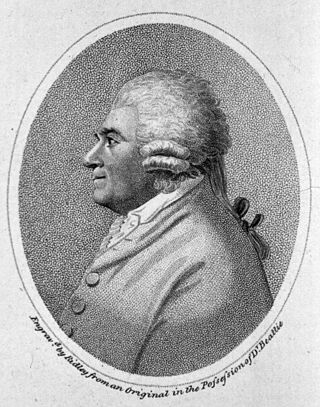
James Beattie was a Scottish poet, moralist, and philosopher.
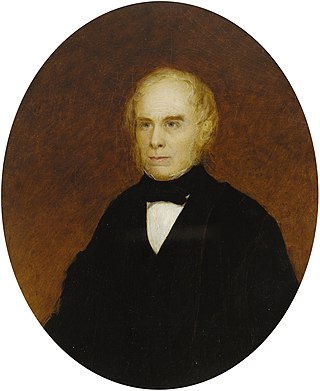
William MacGillivray FRSE was a Scottish naturalist and ornithologist.
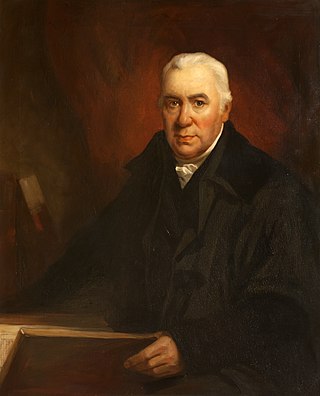
Daniel Rutherford was a Scottish physician, chemist and botanist who is known for the isolation of nitrogen in 1772.

Sir George Adam Smith was a Scottish theologian. He was the Principal of the University of Aberdeen between 1909 and 1935 and an important figure in the United Free Church of Scotland.
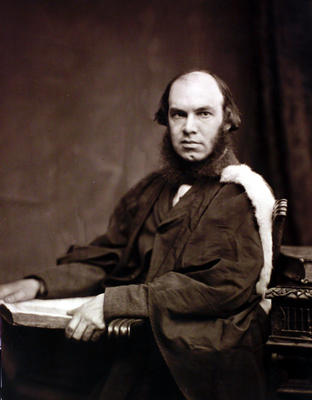
Edward Caird was a Scottish philosopher. He was a holder of LLD, DCL, and DLitt.
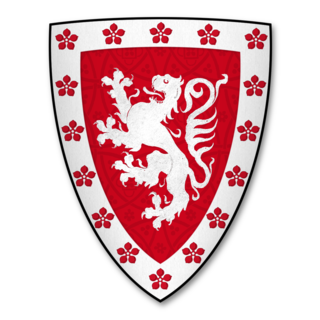
Patrick de Dunbar, 9th Earl of March, was a prominent Scottish magnate during the reigns of Robert the Bruce and David II.
Alexander Gerard FRSE was a Scottish minister, academic and philosophical writer. In 1764 he was the Moderator of the General Assembly of the Church of Scotland.

James Gregory was a Scottish physician and classicist.
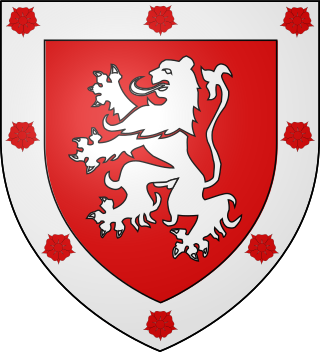
George de Dunbar, 10th Earl of Dunbar and March (1338–1422), 12th Lord of Annandale and Lord of the Isle of Man, was "one of the most powerful nobles in Scotland of his time, and the rival of the Douglases."

George Chrystal FRSE FRS was a Scottish mathematician. He is primarily known for his books on algebra and his studies of seiches which earned him a Gold Medal from the Royal Society of London that was confirmed shortly after his death.
Sir Francis Grant Ogilvie CB FRSE was a Scottish educator, museum director, and scientist.
Angus Macdonald FRSE FRCPE, was a Scottish physician, obstetrician and lecturer at the University of Edinburgh. He served as President of the Edinburgh Obstetrical Society from 1879 to 1881.

John Gray McKendrick FRS FRSE FRCPE LLD was a distinguished Scottish physiologist. He was born and studied in Aberdeen, Scotland, and served as Regius Professor of Physiology at the University of Glasgow from 1876 to 1906. He was co-founder of the Physiological Society.
Prof William Mackay Davidson FRSE RSM (1909–1991) was a Scottish pathologist, haematologist and expert on human chromosomes.
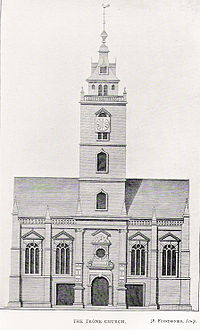
John Drysdale FRSE was twice Moderator of the General Assembly of the Church of Scotland, both in 1773 and in 1784. He was Dean of the Chapel Royal in Scotland 1766 to 1788, and Chaplain in Ordinary to George III. He was brother-in-law to Robert Adam and father-in-law to Andrew Dalzell.
Henry Grieve FRSE was a Scottish minister who served as Moderator of the General Assembly of the Church of Scotland in 1783. He was a co-founder of the Royal Society of Edinburgh in the same year. He was also one of the Deans in the Chapel Royal in Edinburgh and Chaplain in Ordinary to King George IV.
Sir William Robert Smith FRSE DL JP (1850–1932) was a 19th/20th century British forensic scientist, public health expert and also a local politician. He was founder of the Public Health Medical Society which was later renamed the Royal Institute of Public Health.
References
- Attribution
 This article incorporates text from a publication now in the public domain : Rigg, James McMullen (1888). "Dunbar, James". In Stephen, Leslie (ed.). Dictionary of National Biography . Vol. 16. London: Smith, Elder & Co. p. 153.; Endnotes:
This article incorporates text from a publication now in the public domain : Rigg, James McMullen (1888). "Dunbar, James". In Stephen, Leslie (ed.). Dictionary of National Biography . Vol. 16. London: Smith, Elder & Co. p. 153.; Endnotes: - Fasti Aberdon. (Spalding Club), volume lxxxviii.
- Thom's Aberdeen, volume ii. app. i. 13, 14, 52
- Nichols's Lit. Illustr. iv. 822
- Gentlemen's Magazine (1798), pages 539, 622.